With the popularity of ChatGPT, it seems like topics about artificial intelligence suddenly pervade our daily lives. Although I am no longer as enthusiastic about new technologies and new things, and I maintain a cautious attitude towards AI, this does not prevent me from applying some AI services to my work, enriching my toolbox, and improving work efficiency.
Github Copilot
Github Copilot caused a sensation upon its launch. At that time, some predicted the extinction of the programmer profession. However, from the current version, Github Copilot has not exceeded its role as a co-pilot and has become a helpful assistant for many developers, rather than a competitor.
Although VSCode’s support for Swift is also decent, for someone accustomed to using Xcode like me, I don’t use Github Copilot much usually. However, with the initiation of the Copilot for Xcode project, this situation has changed significantly.
For installation and setup of Copilot for Xcode, please read Using Copilot in Xcode
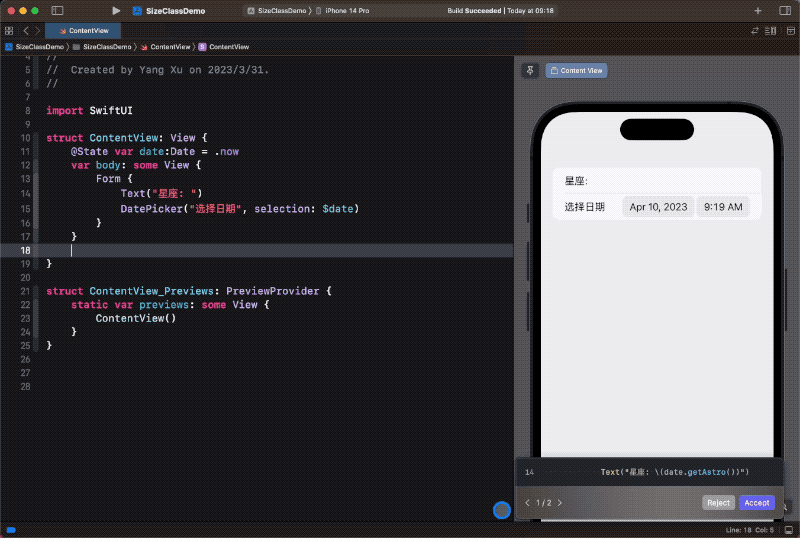
In most cases, I do not directly copy the code provided by Copilot, but it has indeed improved efficiency significantly when creating some common functionalities.
Even though Copilot for Xcode also integrates OpenAI, I am more looking forward to the performance of Copilot X. With added interactive capabilities, it remains to be seen whether Copilot X will still adhere to its role and continue being a helpful assistant for developers.
Notion AI
About a month or two ago, Notion also introduced AI services, integrating them into the document editing workflow.
Notion offers a set of preset shortcuts, reducing the time users spend on repeatedly writing prompts. In Notion, the functions I use the most are translation, summarization, polishing, and tone adjustment.
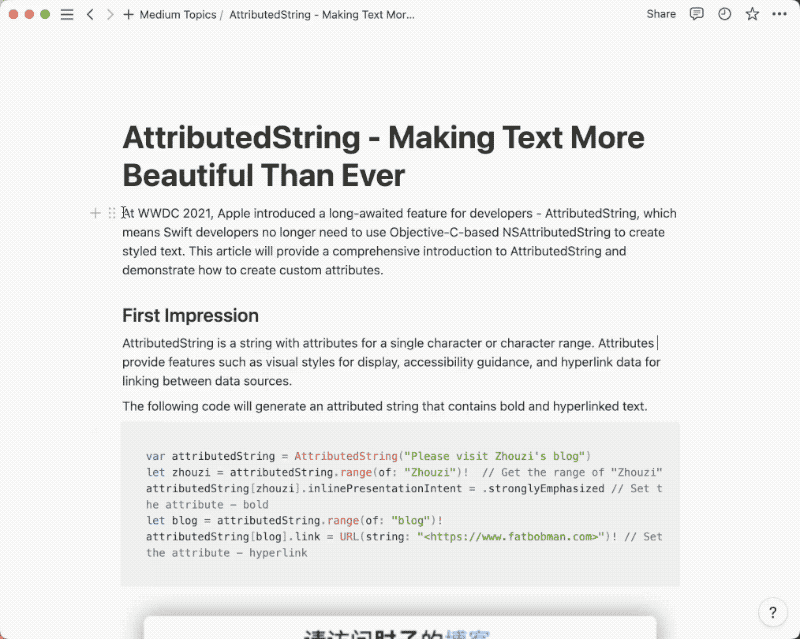
Notion AI’s understanding and processing of Chinese can meet my daily needs. For example, sometimes I get stuck on how to phrase a sentence, feeling that something is off no matter how I put it. Through polishing or tone adjustment, Notion helps me reorganize the sentence structure or switch to another way of expression, freeing me from the dilemma.
Although users can ask Notion to answer other types of questions (such as writing code) like they would with ChatGPT, in actual use, I generally overlook this capability and treat Notion AI the same as other features (like layout settings). For me, this approach is more straightforward, more in line with my habits, and better reflects the assistant role of AI in specific areas.
Compared to ChatGPT, just considering text processing, Notion AI has better response efficiency, lower usage cost, and, for now, no risk of being blocked by the service provider.
Warp AI
As a terminal application, Warp has also timely integrated AI services into its usage process as one of its distinctive features amidst this wave of artificial intelligence.
I use # to switch to AI mode, letting Warp generate the terminal commands I need (with no limit on usage).
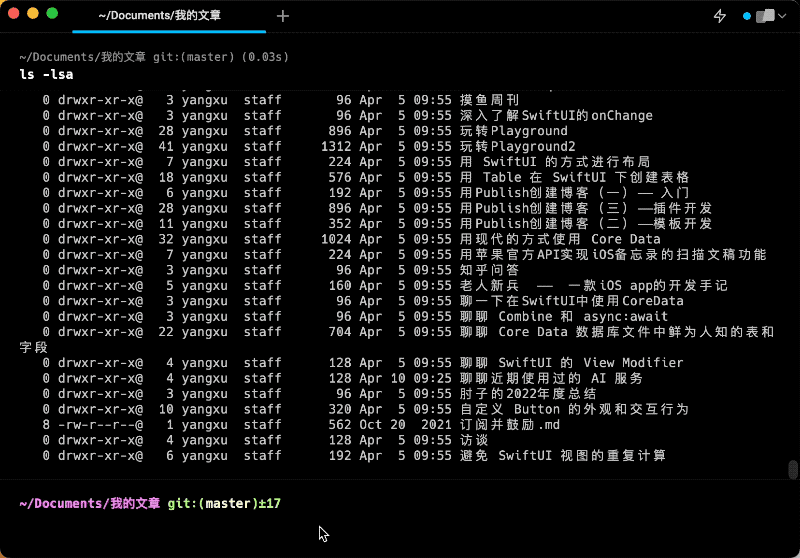
Warp also offers the function to ask different types of questions (click the lightning bolt icon in the top right corner). Since it’s still a free service, there’s a daily limit on the number of questions you can ask (100).
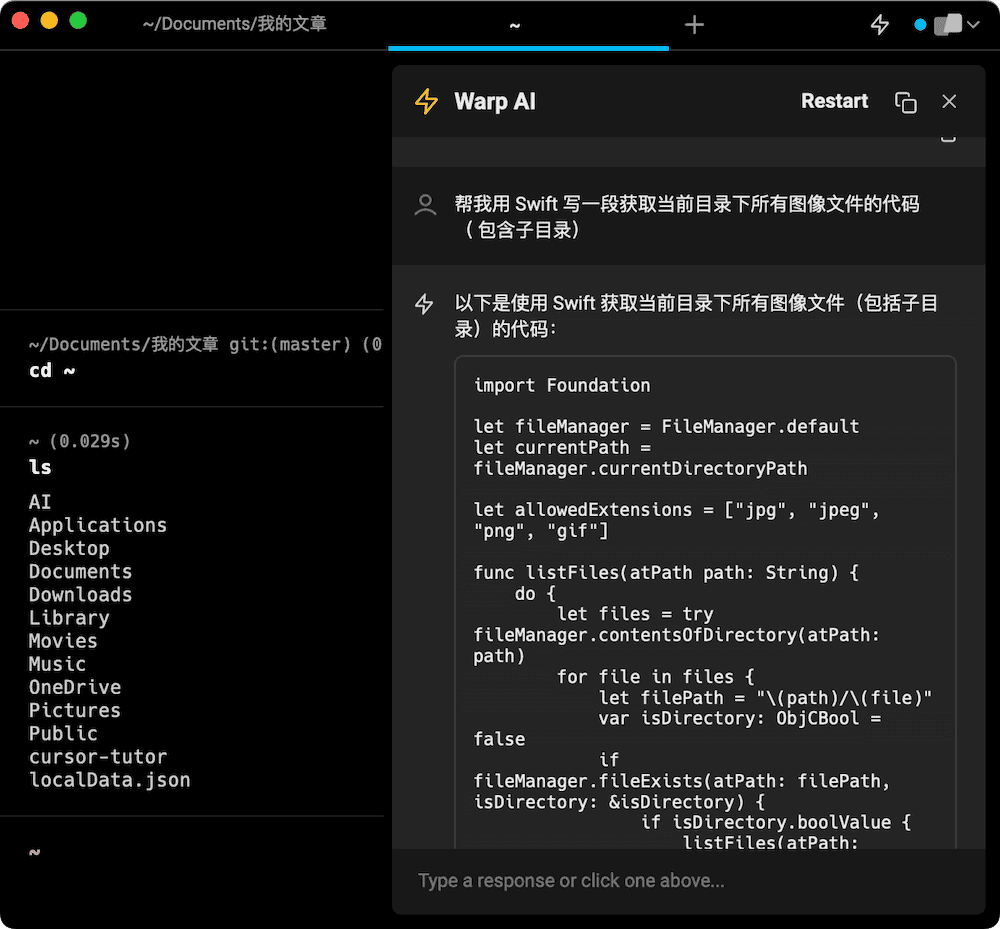
Just like with Notion, I primarily use it in terminal command mode to ask questions related to the command line. Maintaining a clear position for AI assistants is a principle I always adhere to. Otherwise, too many AI entry points can not only fail to improve efficiency but might also cause excessive divergence of thought, impacting the workflow.
MidJourney
Compared to Stable Diffusion, MidJourney is more user-friendly for beginners and offers a higher success rate in image generation.
I currently use images, icons, and other resources generated by it in projects that are not particularly critical.
In the image below, I had MidJourney generate a Twitter Card image needed for this article.
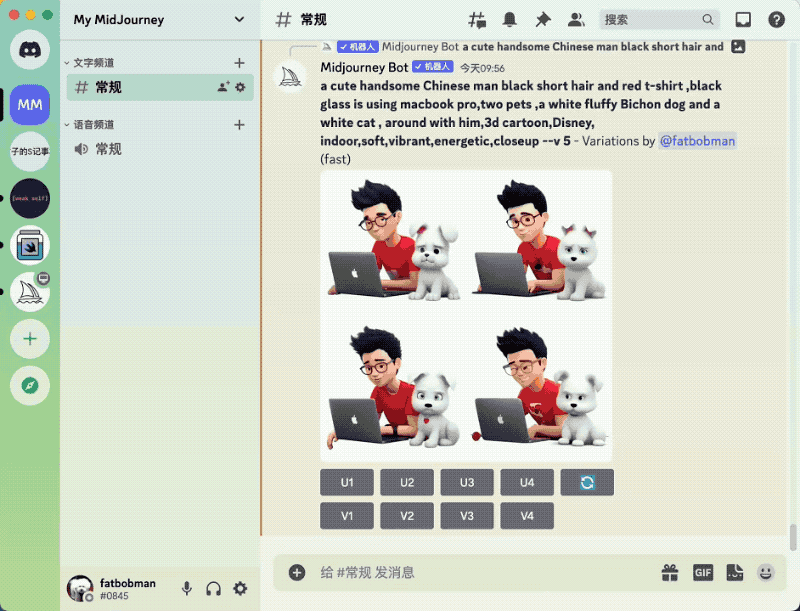
I tried learning Stable Diffusion, but fully utilizing SD is not an easy task. For someone like me who doesn’t want to invest too much effort in this area, MidJourney already meets all my needs.
Even though MidJourney can generate exquisite images, due to limitations in expressing prompts, for serious projects, collaboration with professionals is still necessary to achieve results that better meet the requirements.
For design practitioners, if you only possess the ability to assemble materials, services like MidJourney and Stable Diffusion could indeed impact your career prospects. However, for designers with their own aesthetic concepts and design ideas, these services are just one of many tools. They can help expand your thinking and improve efficiency, but they are not a critical factor.
ChatGPT
As for ChatGPT, which sparked this wave of AI discussions, my feelings are mixed.
On the one hand, its ability to feed relevant information into conversations can sometimes be astonishing; but on the other hand, ChatGPT (or the underlying OpenAI API) currently lacks the characteristics of a complete product. Compared to the other AI services mentioned above, its positioning is not clear, which can be confusing.
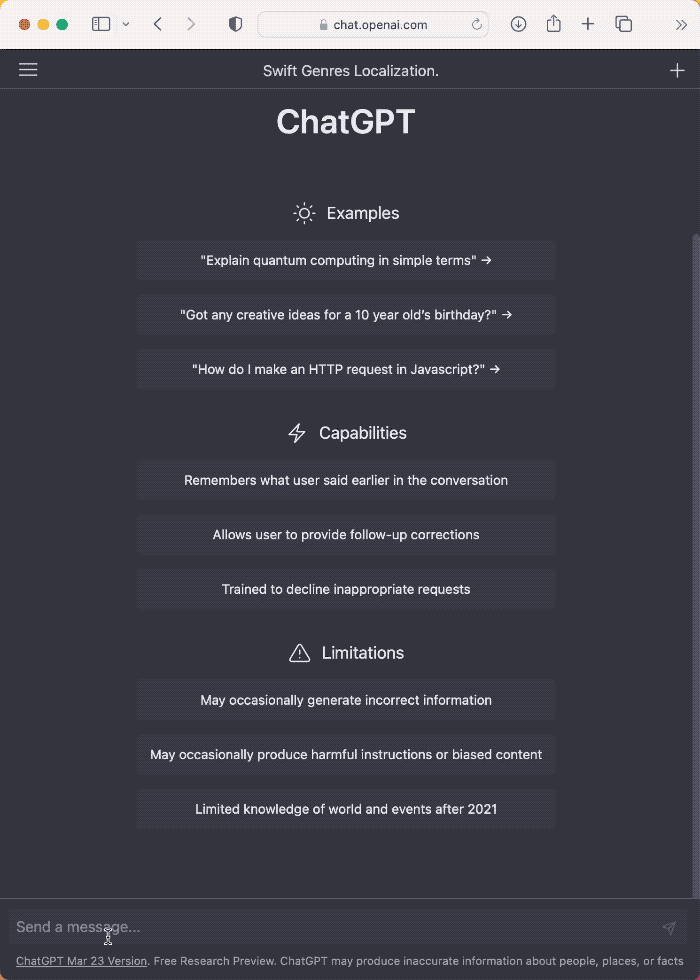
Sometimes, the professionalism of ChatGPT may lead you to believe it has advisory capabilities, only to be surprised by its nonsensical responses. As a product, ChatGPT is not yet up to par, but as a technological showcase, it has indeed placed OpenAI at the pinnacle of the industry.
I believe that in the near future, ChatGPT will increasingly recede from the public eye. OpenAI (or other underlying AI service providers) will act as foundational service providers, offering targeted AI services to users by integrating into other products.
Conclusion
This section was completed independently by Notion 😂. The instruction given was: Add a conclusion to this article, reflecting the future of AI, its concerns, and reassuring users not to worry excessively about AI impacting their employment.
In the future, artificial intelligence will create more value for humanity. The rapid development of AI has increasingly integrated into people’s lives, providing us with more convenient and efficient services. We can look forward to its further development and application, bringing more convenience and surprises to our lives.
However, we also need to be vigilant about the concerns of AI. The widespread adoption of AI may lead to the disappearance of some professions, which is why some people are cautious about AI technology. But we should not overly worry about AI impacting our employment. The progress of human society cannot do without technological innovation, and the development of AI technology will only bring more opportunities and challenges. We need to continuously learn and improve our abilities, adapt to the changes of the times, and thus gain more advantages in competition.
Therefore, we should recognize the great value AI technology brings to us, while also being cautious to avoid negative impacts on our lives. On the road ahead, let’s explore the greater potential of artificial intelligence together to create a better future for humanity.
The Final Conclusion
This section is completed manually (by me).
For me, AI is neither a devastating flood nor a revolution that can change human civilization in a short time. I will neither resist nor overly extol it. Like most new technologies, looking back in a few years, they will have completely integrated into our lives. People will marvel at the convenience brought by technological updates, while also sighing at the growing pains caused by such transformations.